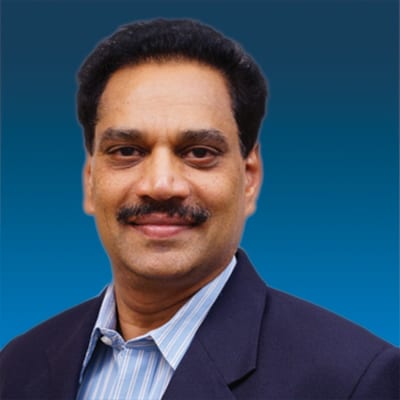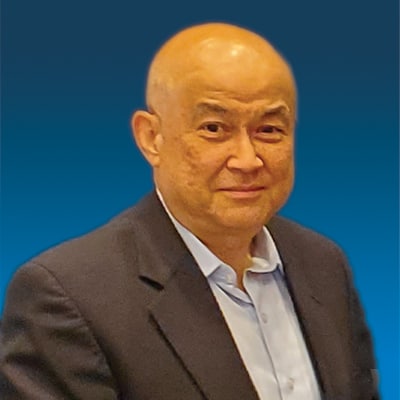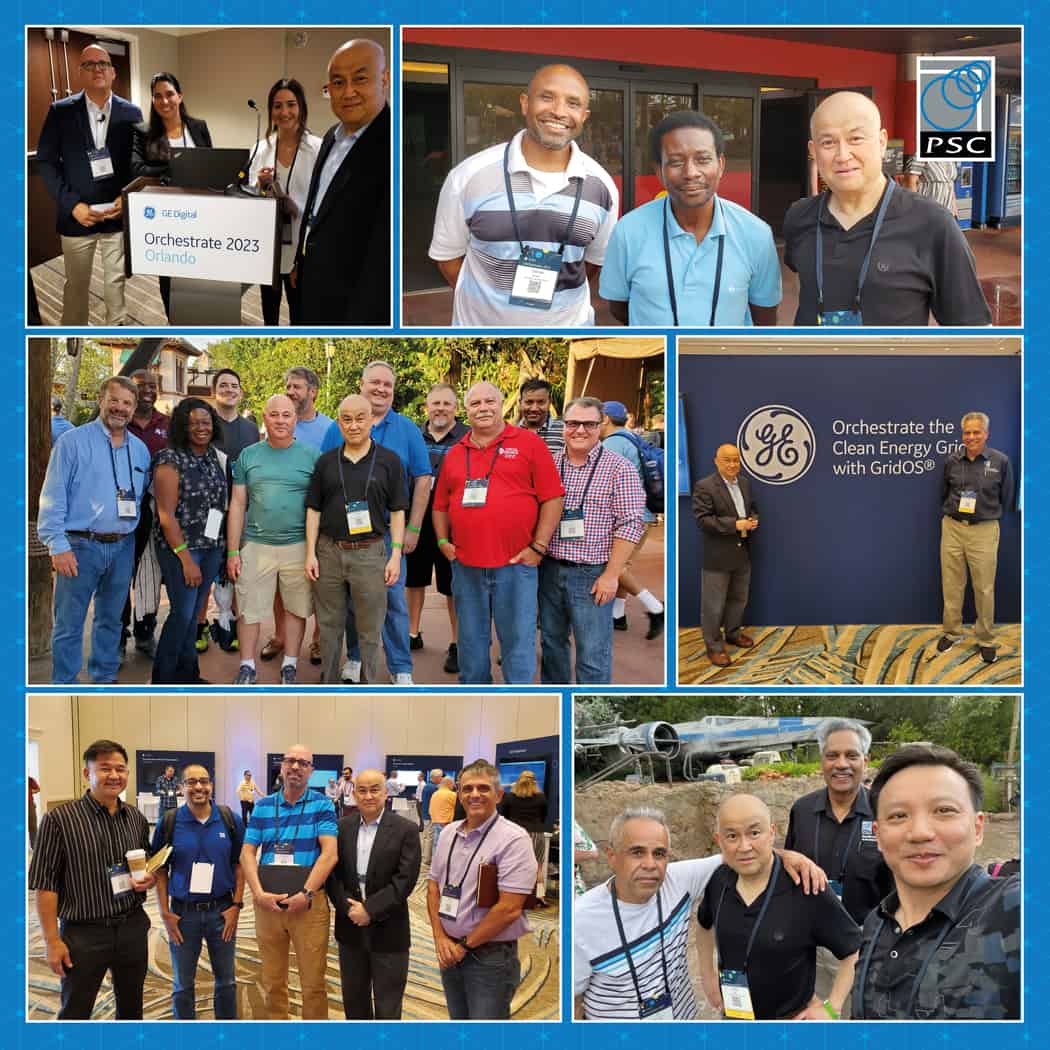

Dr. Anil K. Jampala & Philip Jap
Susan Scott, author of Fierce Conversations, writes, “The conversation is the relationship.” The relevance of this sentiment was illustrated throughout the 2023 GE Digital Orchestrate conference held June 6-9 in Orlando, FL. This conference gave us an opportunity to renew conversations and relationships with our partners, clients and old colleagues. Both of us were reminiscing about our earlier trip 28 years ago when we attended the CEGELEC ESCA Users Group hosted by Reedy Creek. While the industry has undergone tremendous changes since then, the relationships have multiplied and strengthened in addressing decarbonization.
Prioritizing collaboration

Pictured in this montage are folks from Tennessee Valley Authority, Tampa Electric, Florida Power & Light, ISO New England Inc., Hydro One and GE Digital Grid Solutions team, along with Philip and Anil from PSC.
It was energizing listening to leaders from Florida Power & Light (FPL) and Duke Energy discuss ‘real zero’ emissions (zero emissions created or released), their journey towards a resilient decarbonized future, and how partnerships are essential in this transformation.
Melanie Miller of Alabama Power shared her thoughts on leadership and lessons learned from books on growth mindset and vulnerability. In the context of building solid workplace relationships, vulnerability is the root of meaningful connection, helps to build trust, and encourages collaboration. She and Rob Adams of FPL also talked about attracting young talent to this industry and how to make power work sexy by articulating the purpose and criticality of this sector and the many technical challenges that are to be tackled.
Grid complexity demands new solutions
GE’s GridOS platform was the highlight of the conference. It was showcased in spotlight demonstrations and presented in various technical sessions. Several leading utilities are experimenting with this platform before they fully immerse themselves. The following GridOS solutions from around the world were presented:
- Effective Inertia
- SCADA Kafka Interface
- DER Gateway
- Renewables & DER Forecasting
- Visual Intelligence (deploying)
- nGEM (for energy markets in the US and elsewhere)
- Evergreen Test & Deployment (in development)
- Digital Dynamic Line Rating
- Zero Trust Security
Another distinctive feature of GridOS is the ability of customers and partners to add their solutions, relying on the Zero Trust Security layer. This collaborative approach within a partner ecosystem enables quicker development of new applications, allowing utilities to solve challenges faster.
Another technology theme was a shift away from an ‘upgrade’ mentality to ‘update.’ The subtle repositioning here was illustrated in one company’s Wide Area Monitoring System (WAMS) deployment in two days (using microservices) vs 12 days in the past.
Compliance collaboration
FERC order 881 related to Ambient Adjusted Ratings was at the center stage of several conversations during the event. In a nutshell, instead of using one set transmission limit for an entire day, week, or month, under 881, real-time weather conditions will be used to assess line ratings, rendering more accurate limits and ultimately extracting more capacity from the existing infrastructure. Many U.S. utilities are actively engaged in their journey toward compliance with this order which has a deadline of July 2025. A Canadian utility is voluntarily complying with the order and mentioned that about 25% more capacity can be used when AARs are in place!
PSC talked to several attendees about collaborating to meet this compliance deadline. Our white paper on this topic covers the primary roadmap considerations, the main areas of impact and suggestions for dealing with the changes necessary for compliance.
People make it possible
By the end of the conference, we had visited with many attendees, talking about a plethora of topics. The speakers and attendees were all well-versed in their areas of expertise and willing to share not only their successes but also their concerns. It’s clear that to reach a real zero emissions future, we have to work together. No one stakeholder, company, supplier or government will do it alone. By leaning into conversations and building relationships, we inspire each other to solve the tough problems before us on our collective journey toward a real zero-emissions future.
